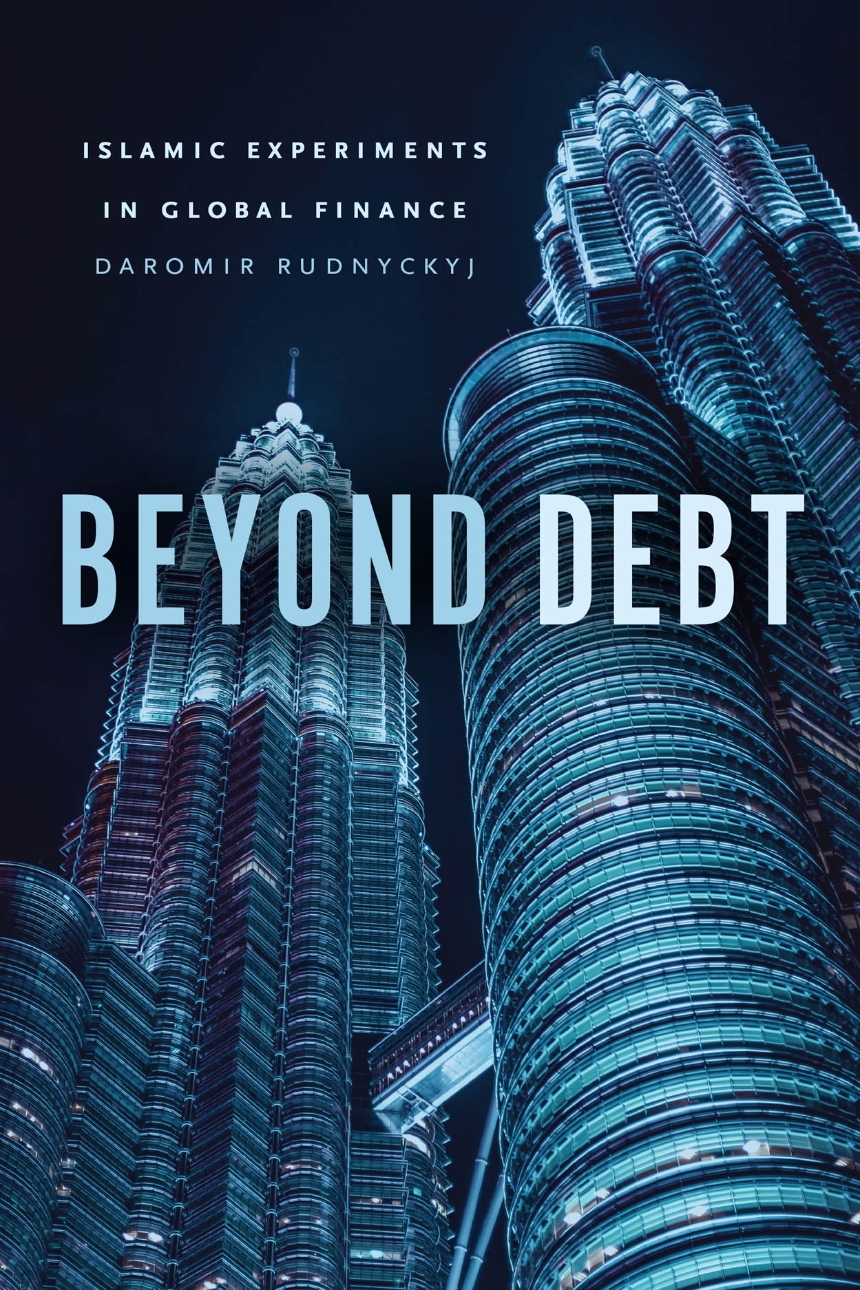Beyond Debt
Islamic Experiments in Global Finance
Recent economic crises have made the centrality of debt, and the instability it creates, increasingly apparent. This realization has led to cries for change—yet there is little popular awareness of possible alternatives.
Beyond Debt describes efforts to create a transnational economy free of debt. Based on ethnographic fieldwork in Malaysia, Daromir Rudnyckyj illustrates how the state, led by the central bank, seeks to make the country’s capital Kuala Lumpur “the New York of the Muslim world”—the central node of global financial activity conducted in accordance with Islam. Rudnyckyj shows how Islamic financial experts have undertaken ambitious experiments to create more stable economies and stronger social solidarities by facilitating risk- and profit-sharing, enhanced entrepreneurial skills, and more collaborative economic action. Building on scholarship that reveals the impact of financial devices on human activity, he illustrates how Islamic finance is deployed to fashion subjects who are at once more pious Muslims and more ambitious entrepreneurs. In so doing, Rudnyckyj shows how experts seek to create a new “geoeconomics”—a global Islamic alternative to the conventional financial network centered on New York, London, and Tokyo. A groundbreaking analysis of a timely subject, Beyond Debt tells the captivating story of efforts to re-center international finance in an emergent Islamic global city and, ultimately, to challenge the very foundations of conventional finance.
Beyond Debt describes efforts to create a transnational economy free of debt. Based on ethnographic fieldwork in Malaysia, Daromir Rudnyckyj illustrates how the state, led by the central bank, seeks to make the country’s capital Kuala Lumpur “the New York of the Muslim world”—the central node of global financial activity conducted in accordance with Islam. Rudnyckyj shows how Islamic financial experts have undertaken ambitious experiments to create more stable economies and stronger social solidarities by facilitating risk- and profit-sharing, enhanced entrepreneurial skills, and more collaborative economic action. Building on scholarship that reveals the impact of financial devices on human activity, he illustrates how Islamic finance is deployed to fashion subjects who are at once more pious Muslims and more ambitious entrepreneurs. In so doing, Rudnyckyj shows how experts seek to create a new “geoeconomics”—a global Islamic alternative to the conventional financial network centered on New York, London, and Tokyo. A groundbreaking analysis of a timely subject, Beyond Debt tells the captivating story of efforts to re-center international finance in an emergent Islamic global city and, ultimately, to challenge the very foundations of conventional finance.
288 pages | 18 halftones | 6 x 9 | © 2018
Anthropology: Cultural and Social Anthropology
Economics and Business: Economics--International and Comparative, Economics--Money and Banking
Reviews
Table of Contents
List of Abbreviations
Introduction: Pious Finance in the Islamic Global City
Part I. Infrastructure
Chapter 1. An Infrastructure for Islamic Finance
Chapter 2. Expertise in Action
Chapter 3. Counterdebt
Part II. Operations
Chapter 4. Making Bonds Islamic
Chapter 5. Adjacent System or Original Knowledge?
Chapter 6. Consuming Form, Investing in Substance
Part III. Problematization
Chapter 7. Experimenting with Risk
Chapter 8. Subjects of Debt, Subjects of Equity
Conclusion: An Emergent Geoeconomics
Acknowledgments
Appendix A: Methodological Notes
Appendix B: Glossary of Islamic Financial Terms
Notes
References
Index
Introduction: Pious Finance in the Islamic Global City
Part I. Infrastructure
Chapter 1. An Infrastructure for Islamic Finance
Chapter 2. Expertise in Action
Chapter 3. Counterdebt
Part II. Operations
Chapter 4. Making Bonds Islamic
Chapter 5. Adjacent System or Original Knowledge?
Chapter 6. Consuming Form, Investing in Substance
Part III. Problematization
Chapter 7. Experimenting with Risk
Chapter 8. Subjects of Debt, Subjects of Equity
Conclusion: An Emergent Geoeconomics
Acknowledgments
Appendix A: Methodological Notes
Appendix B: Glossary of Islamic Financial Terms
Notes
References
Index
